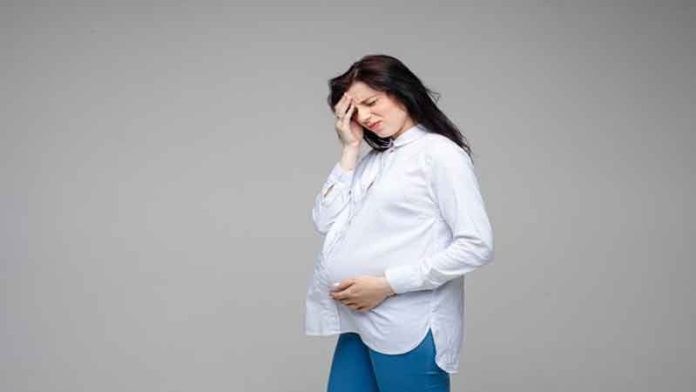
Most pregnancies around the world are smooth without any health issues. But, some may have to face a few pregnancy complications at times during or after the pregnancy. The common complications during pregnancy may affect the mother’s health, the baby’s health, or both. If the pregnant lady is vigilant enough, these common or rare pregnancy issues can easily be managed. Good prenatal care can bring all these pregnancy-related problems under control, and a mother may receive one of the best divine gifts, a normal, healthy baby.
Here, we will give a comprehensive guideline to all those who are destined to get pregnant soon.
Health Issues before Pregnancy may cause Pregnancy Complications:
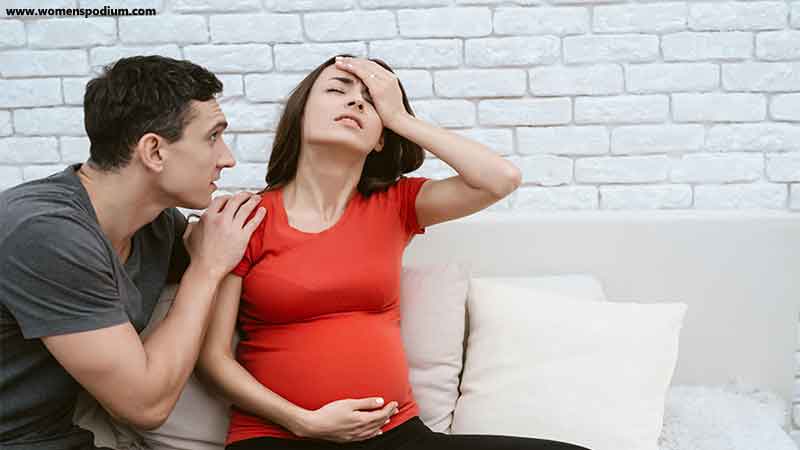
Some of the complications during pregnancy link themselves to health problems before pregnancy. If you are already receiving some treatment, your doctor might have to change your medicine. It is because some medicines could be harmful if taken during pregnancy. Similarly, it may prove fatal to stop some medicine you are already taking. It is only your family doctor who can guide you through all these apprehensions.
Let us briefly look at some of the most prevalent health issues that women may carry along, causing severe complications during pregnancy and delivery.
Major Issues and their Bad Effects on Pregnancy Complications
Asthma: Preeclampsia, poor weight gain in the fetus, preterm birth, cesarean birth.
Diabetes: Severely harmful to fetus and mother, causing long-term pregnancy issues.
Depression: Highly disastrous for mother and her unborn, a risk factor for postpartum depression as well.
Epilepsy and other seizure disorders: Miscarriage or stillbirth.
Eating disorders: Premature birth with congenital disabilities, postpartum depression.
Chronic high blood pressure: Preeclampsia, placental abruption, preterm birth, low birth weight.
Hyperthyroidism and hypothyroidism: Heart failure and poor weight gain in the fetus and many congenital disabilities related to the brain and kidneys.
Some more are:
HIV: The fetus may also get HIV.
Overweight or obesity: Preeclampsia, preterm delivery.
Uterine fibroids: Miscarriage, preterm or breech birth, cesarean delivery.
Migraine: Birth defects and many issues for the mother.
Sexually transmitted infections or STIs: Too early woman’s water break, early labor, post-birth uterus infection to the woman, low birth weight, stillbirth, brain damage, blindness, deafness, liver problems, and the transfer of some STIs to the fetus.
What are the Common Complications of Pregnancy?
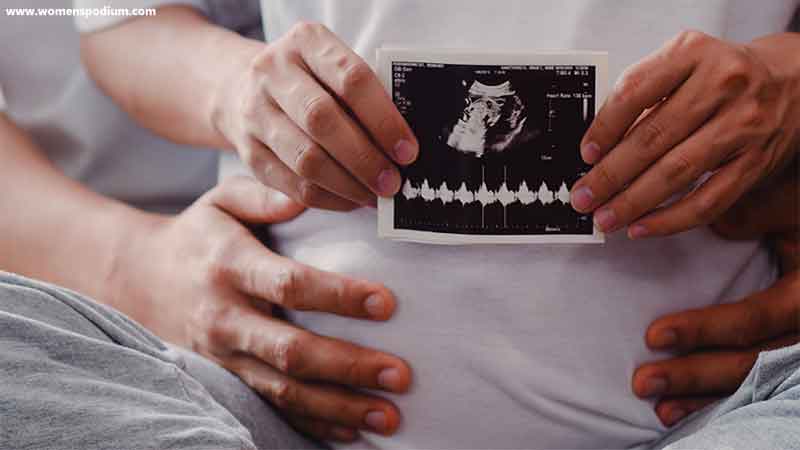
There are three types of pregnancy-related complications:
- That is coming up during pregnancy.
- Those occurring primarily during childbirth are called obstetric labor complications.
- That is rising after childbirth termed puerperal disorder.
Statistics show that 1.6% of Americans and 1.5% of Canadian mothers face severe pregnancy complications, childbirth, and after birth. Also, 31% of women worldwide report long-term health problems even after six months postpartum. Here, we shall discuss all three types collectively.
Maternal Complications during Pregnancy
1. Anemia
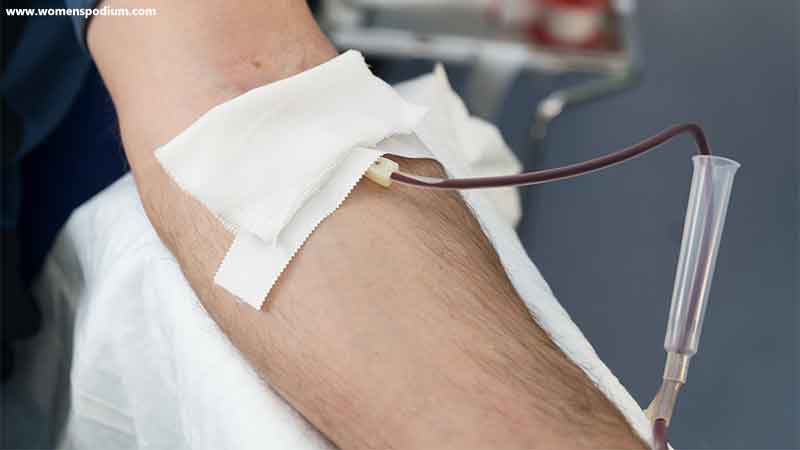
Approximately half of the pregnant ladies worldwide suffer from hemoglobin levels lower than normal in the third trimesters. They feel weak, tired, and faint, experience shortness of breath, and often look pale. Moreover, pregnancy-related anemia can be treated by taking iron and folic acid supplements.
2. Pregnancy-induced Hypertension or High Blood Pressure

This problem starts after twenty weeks of pregnancy and carries throughout till delivery. In the beginning, there are no signs of preeclampsia. Both the mother and the fetus’ health should be watched closely to ward off its signs to appear. The cure is to keep the blood pressure at a reduced level, either through bed rest or limited medication.
3. Preeclampsia or Toxemia

It starts after 20 weeks and causes high blood pressure (160/110) and severe problems to kidneys and other organs. 5 to 8 percent of pregnant mothers get it and face severe headache, dizziness, blurred vision, stomach pain, swelling of hands, and face, and too much protein in the urine. The only cure is delivery, but proper medicines and complete bed rest are advised to the mother until delivery if it is too early for the baby.
4. Eclampsia

Eclampsia is an advanced stage of preeclampsia in which the patient suffers from seizures and severe feelings of nausea and vomiting. 1 to 4 percent of pregnant women gets into these severe pregnancy complications that may prove life-threatening both for the baby and the mother.
5. Gestational Diabetes

The blood glucose level of a non-diabetic female often rises during pregnancy. Sometimes, she feels extreme thirst, hunger, and fatigue. It is highly important to undergo the glucose screening test due to be carried out between 24 and 28 weeks of pregnancy. If a mother is declared positive for this complication, she is advised to have a proper diet and regular exercise. Sometimes, medication is also required to avoid more pregnancy complications. Otherwise, poorly controlled diabetes may result in preeclampsia, early delivery, and cesarean birth, a baby born with low blood sugar level, breathing problems, and jaundice.
6. Hyperemesis Gravidarum

The condition is caused by the rapidly rising blood levels of a hormone called human chorionic gonadotropin (HCG). It stimulates persistent nausea and vomiting harder than just “Morning Sickness.” The pregnant mother vomits several times a day, suffers from weight loss, reduced appetite, dehydration, and fainting. This condition is treated by feeding the patient with dry, bland foods and fluids orally. Medicine is also given to rid nausea. Most of the women with HG start feeling better by the 20th week.
7. Pelvic Girdle Pain

PGP is caused when any or all of the three pelvic joints face problems functioning properly. The pain can begin before or after delivery. Mostly, it vanishes away a few weeks after delivery, but in some women, it lasts for years. The best remedy is rest, rehabilitation, mobility aids, physiotherapy, strong analgesics, etc. In some cases, the patient may have to undergo surgery. Almost 45% of pregnant women get affected by pregnancy complications like PGP out of which 25% report serious pain and 8% get severely disabled.
8. Peripartum Cardiomyopathy

This complication comes up during the last month of pregnancy or up to the six months post-pregnancy. Here, the patient experiences a decrease in heart function that may result in congestive heart failure, thromboembolism, and cardiac arrest. Such pregnancy complications always need to be addressed seriously and timely.
9. Hyperthyroidism and Hypothyroidism

Here, the thyroid glands of the mother start performing over or under the normal pace. Both the abnormalities always affect the mother as well as her baby profoundly. The infant may show many birth defects including heart failure, poor weight gain brain, and kidney problems.
10. Depression

Prenatal and postpartum depression is one of the most common pregnancy complications. The mother becomes utterly sad and helpless and starts thinking negatively about her and the unborn or the newly born. This is mostly because of some hormonal imbalance and can be treated quite easily and effectively. So, there is no need to think negatively while keeping silent. Discuss your sad feelings with your doctor and be sure that things will get solved within a day or two.
11. Premature Labor and Birth

The normal span of human pregnancy is 37 weeks. Anything shorter than this is termed as premature whether it is about labor or birth. Babies born through premature deliveries often suffer many defects and complex health problems in their lives. This complication of pregnancy involves factors like problems with the cervix or uterus, vaginal bleeding, sexually transmitted infections, high blood pressure, too much drinking and smoking, the age of the pregnant, etc.
Pregnancy Complications related to Fetus and Placenta
1. Miscarriage

A loss of pregnancy from natural causes before twenty weeks is termed as miscarriage. 20% of pregnancies end in miscarriage in around 12 weeks and most often it occurs before the pregnant woman comes to know of her pregnancy. Some structural changes in the fetus become incompatible with life. Its symptoms include vaginal spotting and bleeding, cramping or abdominal pain, and some fluid or tissue passing from the vagina. In most cases, miscarriage cannot be prevented and becomes dire.
2. Ectopic Pregnancy
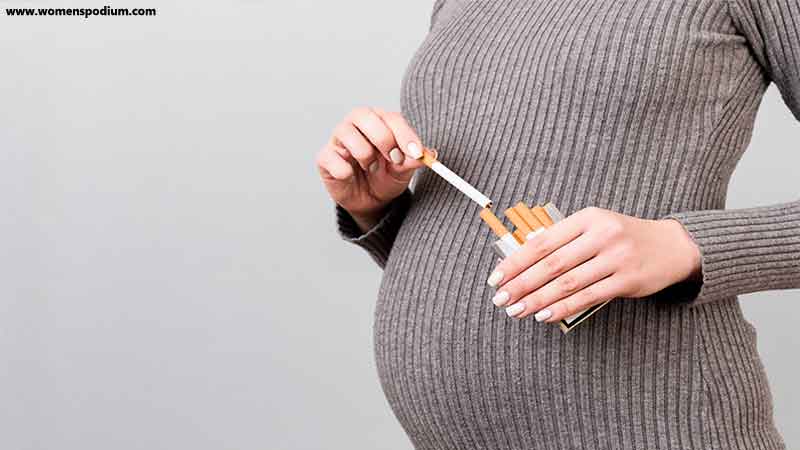
A pregnancy involving the implantation of the embryo outside the uterus is termed ectopic pregnancy. Smoking, advanced maternal age, prior surgery, and trauma to the fallopian tubes are its major risk factors. The best solution is to remove the fetus along with the fallopian tubes through keyhole surgery. This pregnancy complication can also resolve itself on its own at an early stage or the doctor may treat it with an abortifacient like methotrexate.
3. Molar Pregnancy
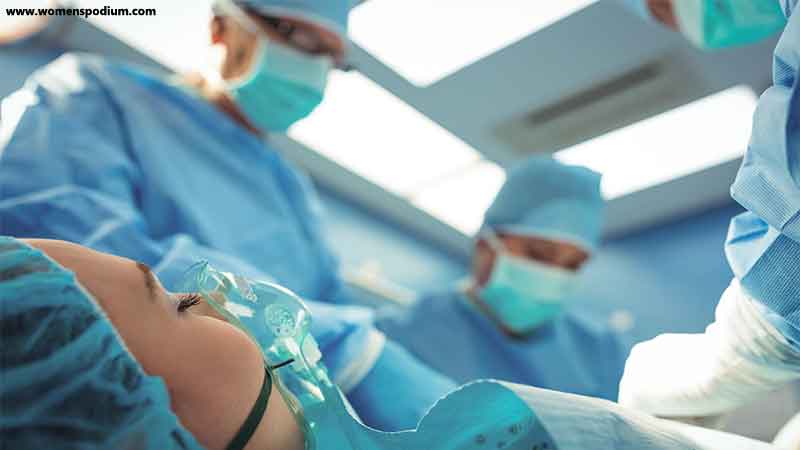
An abnormal pregnancy where a non-viable fertilized egg implants in the uterus, a fetus does not form completely or partially in the womb and a baby does not develop. A brown or bright red bloody discharge, vaginal bleeding, nausea and vomiting, cramping, and weight loss are its symptoms. No embryo, no amniotic fluid, a thick cystic placenta, and ovarian cysts are its characteristic features. The only solution is the removal of the pregnancy.
4. Placental Abruption

This is a term we use when the placenta separates itself from the uterus. It usually happens due to maternal hypertension, trauma, and drug use. Vaginal bleeding, abdominal pain, cramping, and uterine tenderness are its symptoms. The only cure is immediate delivery, for the fetus is not getting enough oxygen. There may require the closest monitoring if the fetus is too young.
5. Placenta Previa
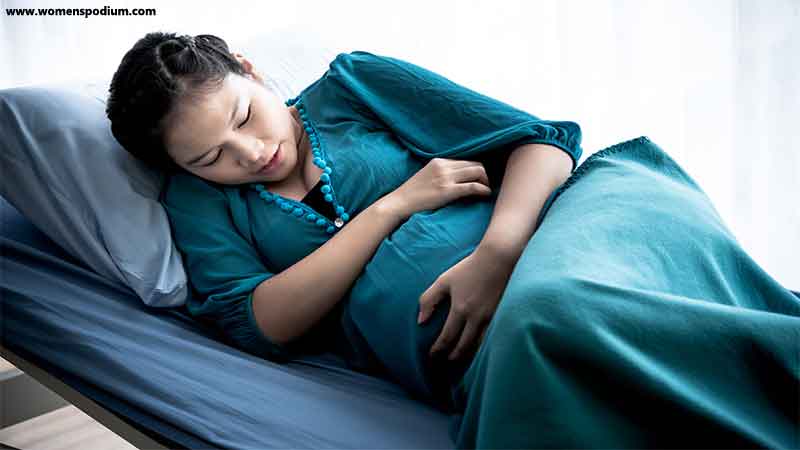
Inside of the uterus, the placenta covers the opening of the cervix completely or partially. It causes painless vaginal bleeding in the second or third trimester. In case of light bleeding, complete bed rest will relieve the tension. Otherwise, hospitalization will be the solution and cesarean delivery is the result.
6. Placenta Accreta
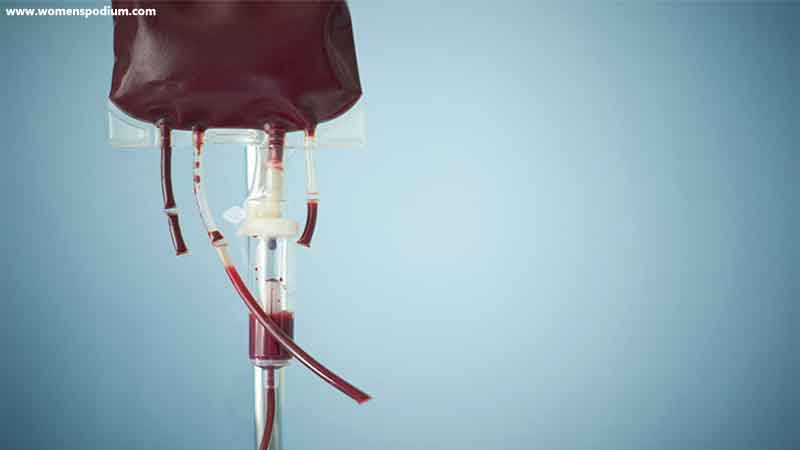
One of the acute pregnancy complications comes up when the placenta grows too deeply into the uterine wall. Normally, the placenta gets detached after childbirth, but with placenta accreta, it remains attached completely or partially, causing severe blood loss after delivery.
Infections Leading to Pregnancy Complications and Defected Newborns
The followings are a few maternal infections that lead to severe issues during pregnancy and the result is a defective baby.
Bacterial Vaginosis (BV) results in preterm birth and a low birth-weight baby.
Cytomegalovirus (CMV) causes hearing and vision loss in the newborn.
Group B strep (GBS) causes sepsis, meningitis or pneumonia, breathing problems, unstable heart rate, blood pressure, stomach and kidney problems in the baby.
Also, Hepatitis B Virus (HBV) extremely affects the liver of the newborn.
Influenza (Flu) enforces premature labor and birth.
Listeriosis may lead to early delivery and miscarriage.
Parvovirus B19 (5th disease) may raise the risk of miscarriage and anemia.
Then, sexually transmitted infections (STI) can cause preterm labor, stillbirth, low birth weight, and many life-threatening infections.
Toxoplasmosis may result in hearing loss, blindness, and intellectual disabilities.
Urinary tract infections (UTI) lead to preterm labor and damage kidneys.
What are Pregnancy Complications in Teens?

Teenage pregnancy is a worldwide social and medical problem that must be addressed seriously by all the stakeholders. Poor social and educational setups, extensive use of drugs and alcohol, sexual abuse, sex at a young age without any knowledge of contraception are the main causes of teenage pregnancy. A pregnant teen is at a higher risk of pregnancy complications like preeclampsia, anemia, sexually transmitted diseases, premature delivery, and a baby with low birth weight.
What are Twin Pregnancy Complications?
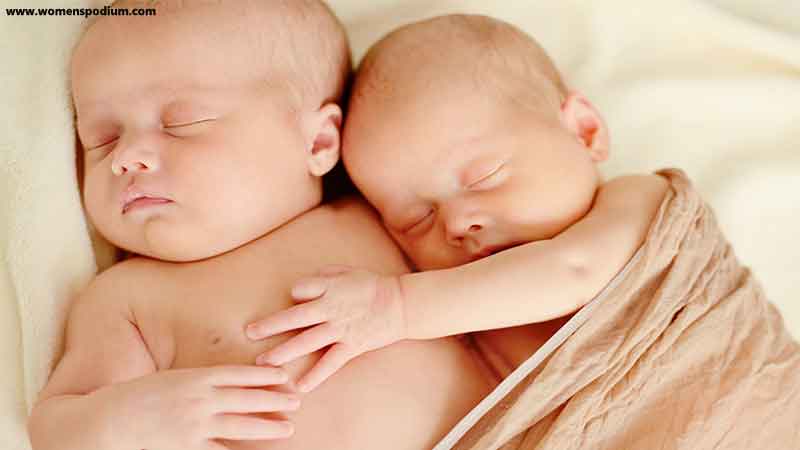
Though a happy event for many couples, twin pregnancy has the following high risks for complications.
- Gestational diabetes
- Gestational high blood pressure
- Anemia
- Also, preterm labor and birth
- Miscarriage
- Birth defects
- Twin-to-twin transfusion syndrome
- Then, abnormal amounts of amniotic fluid
- Cord entanglement
- Cesarean delivery
- Also, postpartum hemorrhage
What are High-risk Pregnancies and Risk Factors?

A high-risk pregnancy is not a separate entity in itself. All the pregnancies may fall into this category if the pregnant lady is:
- 17 or younger.
- Over 35.
- Underweight or overweight when she conceives pregnancy.
- Carrying twins or multiples.
- Also, Suffering from high blood pressure, diabetes, depression, or other severe problems.
- Having a child born through preterm labor and has genetic problems or birth defects.
- Addicted to too much smoking and drinking when pregnant.
Also Read: To be a first-time mother is truly bliss for every woman. When you know how to put a baby to sleep, you give yourself some quality time to finish your unfinished work.





